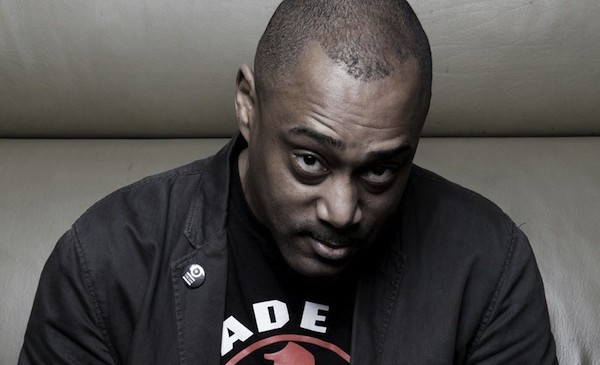Mike Huckaby isn’t just one of Detroit’s most beloved producers and DJs, he’s one of its most dedicated teachers and irrepressible enthusiasts.
Since he first made his name in 1995, the house music stalwart has released classic records on labels such as Third Ear, Rick Wade’s Harmonie Park and most recently Tresor, as well as on his own Deep Transportation and S Y N T H imprints. He worked for years behind the counter at the legendary Record Time store. He has remixed the likes of Model 500, Pole, DeepChord, Vladislav Delay and Terrence Dixon, and released two volumes of reel-to-reel edits of Sun Ra (“Jazz is the umbrella under which deep house music resides,” he once told FACT). Meanwhile his ever-evolving understanding and appreciation of synthesis and studio processes, and his voracious appetite for new technology, has earned him a reputation as something of a producer’s producer.
To his infinite credit, Huckaby is also someone who takes pleasure in sharing what he’s learned, and encouraging others to bring their own ideas to fruition. He can be founding regularly coaching students at Detroit’s Youthville Centre in Ableton Live, Reaktor and other music production technologies, and he has led many workshops worldwide. Just today it was announced that he has compiled a free sample pack for Groove, featuring sounds culled from such disparate sources as the Alesis Andromeda synthesizer and his brother playing live percussion in a noisy café in Toledo, Ohio.
Mike Huckaby will be playing at the Holic NYE 2013 party in London, which takes place at Cafe 1001 and the Old Truman Brewery Warehouse on, of course, December 31. But this is no ordinary NYE party: it’s an 18-hour marathon, kicking off at 8pm and going hard until midday on New Year’s Day. The Huck will be joined by Kate Simko (live), DJ Steaw, Tomoki Tamura and many more; find more information and tickets here.
Ahead of the event, he apprised FACT of his five key tips for producers looking to establish themselves and their sound. “Weak producers die,” he concedes. “Strong ones continue on…”
